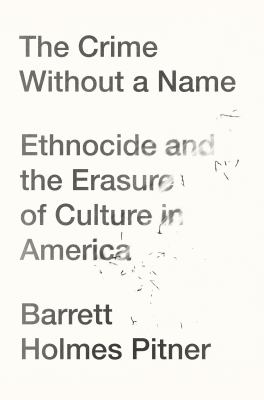
print
|
The crime without a name : ethnocide and the erasure of culture in America
-- Ethnocide and the erasure of culture in America
Copies
3 Total copies, 2 Copies are in,
1 Copies are out.
Authors
Subjects
Language
English
Dimensions
24 cm







